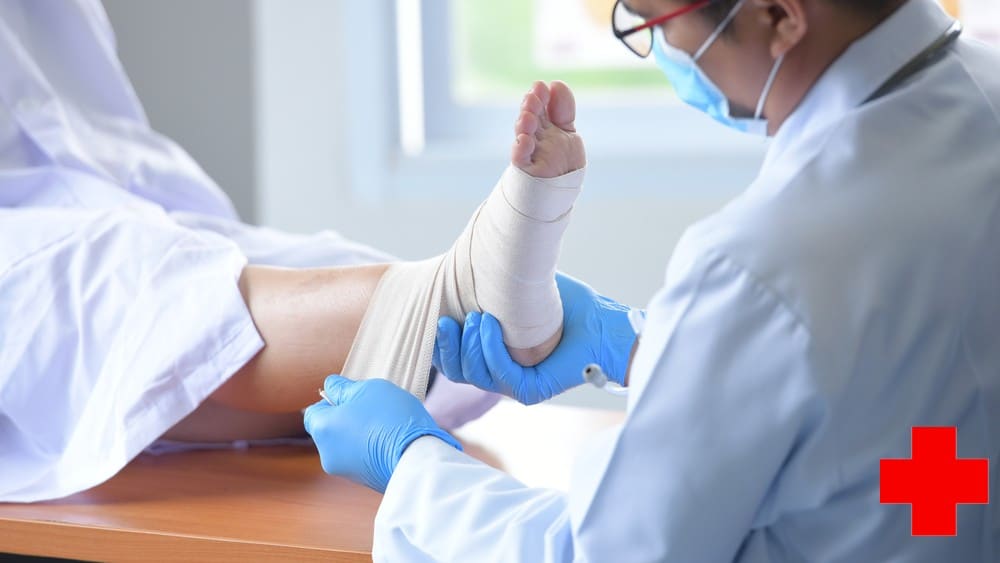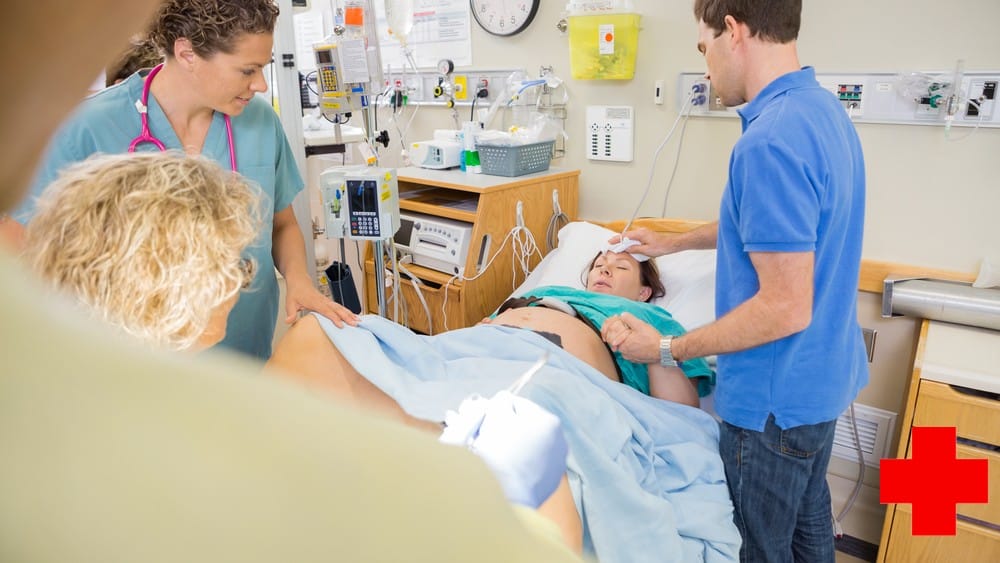Hello good people, Welcome to yet another fun article on the Forensic Psychiatric Nurse career!
This article is embedded with all the information needed to pursue your Psychiatric Nursing career.
After reading this comprehensive write-up, we guarantee that you will better understand a Forensic Psychiatric Nurse’s qualifications, duties, and skills.
We will specifically look into the following areas:
- What is a Forensic Psychiatric Nurse
- Roles and duties of a Forensic Psychiatric Nurse
- Forensic Psychiatric Nurse skills and competencies
Without much further ado, let’s get right into it!
Introduction

The role of the Forensic Psychiatric Nurse is becoming more central in our lives as the mental health situation in America deteriorates, and violent mental health-related crimes increase.
According to the Bureau of Labor Statistics (BLS), between 2014 and 2024, the demand for Forensic Psychiatric Nurses will increase by 16%.
And as the treatment and rehabilitation of violent crime offenders and victims become more critical, more state and local entities now rely on Forensic Psychiatric Nurses.
While still quite a new nursing specialty, the forensic psychiatric nursing career is rapidly gaining traction due to the numerous societal mental health issues.
If you’re passionate about healthcare and criminal justice, you should consider forensic psychiatry as it merges these two critical subjects.
Read on to understand more about this exciting specialty nursing career.
What’s a Forensic Psychiatric Nurse?

A Forensic Psychiatric Nurse (FPN) or Forensic Mental Health Nurse is a healthcare professional engaged in the specialized psychiatric nursing practice.
Forensic Mental Health Nurses apply their nursing training that merges facets of medicine and law to understand the mental health of criminals and victims of crime.
Through their advanced training in Psychiatric Nurse schooling, Psychiatric RNs help gathers, present, and preserve evidence used during criminal proceedings.
Forensic Psychiatrist Nurse Education Requirements

Forensic Mental Health Nurses are highly trained and specialized nursing practitioners who merge nursing and legal principles.
FPN education requirements include:
1) Bachelors of Science in Nursing (BSN) degree
To work as a Forensic Mental Health Nurse, you need to meet the basic requirements of being a Registered Nurse (RN), a four-year BSN degree.
Some people opt to get an Associate Degree in Nursing (ADN) or a diploma in nursing; these requirements will take you longer to be an FPN.
Consider getting your nursing bachelor’s degree from an accredited nursing training institution.
2) Master’s Degree in Forensic or Psychiatry
Most Psychiatric RNs acquire advanced Mental Health Nurse schooling through a Master of Science in Nursing (MSN) or postgraduate degree specializing in psychiatric nursing.
You can opt for online or in-person forensic psychiatric master’s programs that go a long way in improving your technical understanding and application of forensic nursing training.
Forensic Psychiatric Nursing certification requirements

To work as an FPN, you need professional psychiatric nursing certification from the International Association of Forensic Nurses (IAFN).
Here are the Psychiatric Mental Health Nurse certification requirements:
1. Registered Nurse (RN) certification
After finishing an accredited registered nursing training program, Forensic Psychiatric Nurses must pass the NCLEX-RN exam to earn RN certification.
RN licensure is issued by individual state nursing boards and proves the competence of a Psychiatric RN.
2. Sexual Assault Nurse Examiner (SANE) certification
The SANE certification is a voluntary certification that most FPNs take to help them deal professionally and humanely with victims of sexual crimes.
Forensic Psychiatric Nurse Practitioners who undertake SANE training are in a better state to collect crucial evidence and better assess the mental health of sexual crime victims.
You can pursue two SANE certification courses: Adult and Pediatric SANE certifications.
The SANE certificate from the International Association of Forensic Nurses (IAFN) validates the competency and training of Forensic Mental Health Nurses.
Nurse Coroners, Sexual Assault Nurse Examiners, Forensic Psychiatric Nurses, and Correctional Nurse Specialists benefit from the SANE certification.
Roles and duties of a Forensic Psychiatric Nurse

Forensic Mental Health Nurses provide various mental health services to improve patient’s mental health.
The clinical practice of an FPN typically revolves around the following core nursing functions:
1. Mental health assessment
Forensic Psychiatric Nurses are involved in assessing and evaluating the mental health status of criminals and victims of crime.
Using interviews, clinical evaluations, and psychiatric tests, FPNs can identify different mental illnesses in the patients.
Common mental issues that Forensic Mental Nurses deal with in their day to day duties include schizophrenia, bipolar disorders, depression, anxiety disorders, and Post Traumatic Stress Disorders (PTSD)
2. Evidence collection and preservation
One of the core Forensic Psychiatric Nurse roles involves collecting, analyzing, preserving, and documenting crucial evidence used during criminal cases.
FNPs collect evidence through;
- Physical examination of the subject
- Detailed victim and perpetrator interviews
- Collecting biological evidence, including DNA samples using rape kits and sexual assault evidence kits (SAEK)
- Photographing and recording verbal interviews
FPNs often collect hairs, fibers, semen, blood, and saliva samples for analysis and evidence during criminal proceedings.
Forensic Psychiatric RNs must always ensure that the collected evidence is uncontaminated, of high quality, and has been collected only after the formal consent of the subject.
Poor evidence handling can lead to tampering or inadmissible evidence in court due to a breach of the evidence collection procedure.
3. Treating mental illnesses
One of the primary duties of the forensic psychiatric nursing career is to identify, understand, and treat different types of mental health diseases.
And while some mental health issues may be beyond the scope and training of an FPN, Psychiatric Nurses offer very high value in the mental wellness sphere.
FPNs treat mental health patients in different settings depending on the patients’ circumstances.
Forensic Psychiatric Nurses often work in:
- Correctional facilities
- Psychiatric institutions
- Hospital emergency rooms
Most of FPNs’ mental patients suffer from schizophrenia, multiple personality disorders, psychopathic disorders, organic brain damage, and associated mental conditions (substance abuse, violence, trauma).
4. Provide expert testimonies during trials
Forensic Mental Nurses are widely used to offer expert opinions and testimonies during criminal proceedings, often involving criminals displaying cases of mental illness.
Typical cases in which FPNs appear as expert witnesses/consultants often involve rape, defilement, child abuse, domestic abuse, and other criminal cases involving violence.
Due to their advanced psychiatric nursing training and experience, FPNs help the courts understand how the minds of criminals and victims work before, during, and after episodes of violent crime.
Forensic Mental Nurses can appear as material or expert witnesses for the state or defense teams.
Additionally, FPNs help courts decide if accused persons are mentally fit to stand trial through court-ordered mental evaluations.
Skills and Competencies of a Forensic Psychiatric Nurse

What makes an FPN effective?
Is it their desire for justice and equality or their interest in understanding criminal behavior?
Forensic Psychiatric Nurses need to have high levels of nursing training and years of clinical practice experience behind their backs to be effective.
Apart from nursing training and years of experience, successful Forensic Psychiatric Nurses also possess the following qualities:
1. Excellent communication skills
All Nurses must be excellent communicators; it comes with the territory.
Practical communication skills are even more crucial for Forensic Psychiatric Nurses who constantly deal with mentally ill criminals or victims of crime.
Possessing excellent communication skills as an FPN allows you to:
- Quickly gauge the mental well being of subjects through interviews
- Identify a patient’s psychiatric triggers
- Gain the trust of victims of crime, allowing them to open up
- Effectively carry out psychiatric rehabilitation sessions with patients
- Liaise with different state agencies and healthcare staff when dealing with crime cases
- Effectively present testimonies and expert opinions in legal proceedings
Having excellent communication in forensic mental health nursing is a big plus and allows you to be a more effective Forensic Mental Health Nurse.
2. Investigative skills
As a Forensic Nurse, your investigative skills must be top-notch.
And it’s a no-brainer considering that forensic psychiatric nursing means applying science to investigate psychiatric-related crimes.
Forensic Nurses usually rely heavily on investigative techniques to do their jobs.
Practical investigative skills are crucial whether you’re a death investigator, Forensic Psychiatric Nurse, or Sexual Assault Nursing Examiner.
3. Organization skills
Forensic Mental Health Nurses deal with many moving parts, even when handling a single mental patient or case.
Without effective organizational skills, their job would be much more complex.
Organization skills for FPN refer to:
- Ability to arrange and streamline workflows between patients
- Ability to properly collect and preserve evidence
- The capacity to prepare and design effective patient treatment plans
- The skills to liaise and coordinate between multiple, multisectoral teams
Excellent organization skills are a must-have competency for people in the forensic psychiatrist career.
4. Decision-making skills
Forensic Mental Health Nurses always have to make the tough calls.
Is a suspect fit for trial?
Is the victim the actual perpetrator?
Was the suspect in the right frame of mind when committing the crime?
These are some of the tough questions Forensic Nurses have to answer, especially when dealing with criminal proceedings.
Having good decision-making skills means that erroneous judgments and diagnoses will be reduced, thereby eliminating errors that may cause long-term harm to parties involved in legal cases.
5. Expert in criminal justice
Apart from providing comprehensive nursing care to mental health patients, Forensic Psychiatric Health Nurses are vital during criminal prosecutions.
FPNs often work with the state to give expert opinions or expert testimony to get victims of crimes justice.
Forensic Mental Health Nurses need to understand the criminal justice system perfectly to effectively carry out their legal mandate.
Having a good grasp of the law enables FPNs properly collect, preserve, and present evidence in court.
Additionally, understanding the scope of the criminal justice systems allows them to prosecute criminal cases better.
Where do Forensic Psychiatrist Nurses work?

Forensic Mental Nurses provide vital mental health services across various locations and settings.
Here are some places where you can find forensic mental health nursing jobs:
1. Correctional facilities
Forensic Psychiatric Nurses often work in long or short-term facilities offering various mental health services.
The duties of Psychiatric Nurses in correctional facilities include:
- Evaluating inmate’s mental state before incarceration (suicide or violence risk)
- Recommending psychiatric medications and therapies to inmates
- Assessing suspect’s “fit to stand trial” fitness
- Conducting court-ordered psychiatric mental evaluations on suspects
Correctional Nurses specializing in forensic psychiatry work in correctional facilities and deliver much-needed mental health services for the criminals behind bars.
2. Mental health facilities
FPNs often work in government-run mental facilities for drug abusers and other mentally ill people.
Most health facilities are drug halfway houses, criminal rehabilitation clinics, and other forms of psych wards that cater to violent mental health patients.
Usually, Forensic Psychiatric Nurses offer both inpatient and outpatient mental services to mental health patients in these facilities.
3. Law enforcement organizations
Forensic Psychiatric Nurses often work with law enforcement organizations to help arrest and prosecute dangerous criminals.
Most often, FPNs will work with police units, homeland security, and the FBI in joint multi-agency teams that help prosecute criminals and deliver justice to victims.
Law enforcement FPNs:
- Help understand the motives and causes of crimes
- Deliver justice to victims
- Collect, preserve and present qualified evidence
- Assist the prosecution through expert opinions and testimonies
The role of a Forensic Psychiatric Nurse is gaining increased prominence with time.
4. Medico-legal organizations
Forensic Psychiatric Nurses often work with medico-legal organizations to increase sensitization and awareness of social justice among victims of crime.
Additionally, medico-legal organizations take up gender and sexual violence cases for impoverished people where FPNs are crucial in collecting and preserving evidence.
By working in medico-legal units, Forensic Mental Health Nurses ensure that justice for the oppressed is guaranteed.
Conclusion

Since 1995, when the American Nurses Association (ANA) officially recognized forensic nursing as a nursing specialty, forensic psychiatry has grown year on year.
And while the forensic psychiatrist education requirements remain a challenge to many people, more RNs now prefer to specialize in forensic psychiatric nursing.
Not only is the forensic nursing salary tremendous, but you get to be a part of the team that delivers justice to victims of crime.
Forensic mental health nursing is a great career option for nursing students weighing their fields of specialization.
RN providers with years of experience should consider advancing their nursing training and work as Psychiatric Nurse consultants.
Psychiatric Nurse Specialists earn higher salaries and work in more authoritative nursing positions.
We hope this comprehensive Forensic Psychiatric Nurse article has answered all your concerns about this nursing specialty.
Please continue reading for answers to our readers frequently asked questions.
FAQs

Are Forensic Nurses in demand?
According to the Bureau of Labor Statistics, the demand for Forensic Nurses will grow by 16% between 2014 and 2024. And with the growing levels of violent crime, mental health issues, and seriousness of law enforcement bodies, the importance of Forensic Nurses will continue to grow exponentially.
How much does a Forensic Psychiatrist make?
Typically a Psych Ward Nurse’s salary is much lower than a Psychiatric Doctor’s salary due to differences in training and experience. On average, a Forensic Psychiatrist makes:
– $268000 p/a with $26000 bonuses (Medscape)
– $206793 annually (Salary.com)
– $186985 annually (Glassdoor)
– $216066 annually (Talent.com)
– $186947 p/a (Ziprecruiter)
How to become a Forensic Psychiatric Nurse?
To become a Forensic Psychiatric Nurse, follow these steps:
– Enroll in a four-year BSN or two year ADN program
– Pass the NCLEX-RN certification exam
– Gain clinical nursing experience
– Enroll in advanced forensic nursing programs with a psychiatric subspecialty
– Pass the International Association of Forensic Nurses (IAFN) forensic certification exam
Is forensic nursing a good career?
Forensic nursing is great for:
– People who are interested in social justice, equality, women’s rights, advocacy, and helping vulnerable groups
– Individuals interested in both medicine and the legal justice system
– Nurses interested in a multidisciplinary nursing specialty (psychosocial, physiological, and psychological)
– Individuals interested in correctional nursing.
What do Forensic Psychiatrists do?
The duties of a Forensic Psychiatrist include:
– Evaluating the mental health of patients
– Provide testimonies and expert opinions during legal proceedings,s including providing prisoner mental health assessments and diagnoses
-Formulate interventions for patients with violent behavior
– Prescribe medication and create treatment plans for mental health patients
How to be a Forensic Nurse
To become a Forensic Nurse, you need to:
– Enroll in an accredited four-year BSN or two years ADN RN program
– Pass the NCLEX RN exam
– Join an advanced forensic nursing training in a specific forensic specialty
– Get forensic certification from the International Association of Forensic Nurses
What is forensic nursing?
The International Association of Forensic Nurses (IAFN) defines forensic nursing as a specialized branch of nursing that deals with medicine and the legal system. Forensic nursing deals with the mental health of criminals and victims of crime, helping the justice system understand crime’s psychological, physiological, and psychosocial impact.
Why Forensic Psychology is important
The importance of forensic psychology includes:
– Help understand the criminal minds to prevent future crimes
– Provide justice to victims of crimes
– Diagnose the mental health illness of a criminal
– Help victims of crime to heal
Can Forensic Psychologists diagnose?
Due to their advanced practice and training, Forensic Psychologists can diagnose mental illness through psychological evaluations, clinical testing, and interviews. Apart from diagnosing a patient’s mental health issues, Forensic Psychologists can perform therapies and other treatments. Forensic Psychologists are crucial in helping treat criminals’ and victims’ mental issues.
How to become a Forensic Psychiatrist
These are the steps toward becoming a Forensic Psychiatrist:
1. Enroll in a four-year full-time medical degree
2. Complete a four-year psychiatry residency
3. Complete a two-year psychiatry fellowship
4. Sit for the American Board of Psychiatry and Neurology (ABPN), Forensic Psychiatry specialty certification exam
What is the responsibility of the Forensic Psychiatric Nurse?
Forensic Nurse Psychiatrists are responsible for:
– Providing patient care to mental health patients and victims of crime
– Preserving evidence and acting as expert consultants during criminal legal proceedings
– Evaluating mental health conditions of criminals (assess the risk of suicide or violence)
– Assisting in rehabilitating criminals









